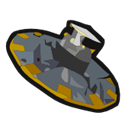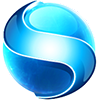Unveiling the Best Mitaka Alternatives: Your Guide to Exploring the Universe
Mitaka, developed by the Four-Dimensional Digital Universe (4D2U) project of the National Astronomical Observatory of Japan (NAOJ), offers a captivating journey through the cosmos. With its space mode for exploring celestial structures and planetarium mode for localized sky views, Mitaka seamlessly integrates observational data and theoretical models. While a powerful tool, users often seek Mitaka alternatives for varied features, platforms, or open-source options. This guide will explore some of the top programs that can enhance your astronomical explorations.
Top Mitaka Alternatives
Whether you're a casual stargazing enthusiast, a student, or a professional astronomer, there's a universe visualization tool out there for you. Here's a curated list of excellent Mitaka alternatives that offer unique features and experiences.

Stellarium
Stellarium is a free, open-source planetarium that delivers a realistic 3D sky view, mimicking what you'd see with the naked eye or a telescope. Available on Mac, Windows, Linux, and PortableApps.com, it's an excellent Mitaka alternative for its 3D animation and educational features.

Celestia
Celestia is a free, open-source application providing real-time 3D visualization of space, featuring a detailed solar system, over 100,000 stars, and more than 10,000 galaxies. Compatible with Mac, Windows, Linux, and PortableApps.com, its robust simulation capabilities make it a strong Mitaka alternative, especially for those seeking detailed spatial exploration.

Space Engine
Space Engine is a commercial 3D space simulator for Windows, excelling as a procedural universe generator and visualiser. Its free-roam capabilities and procedurally generated content offer a truly immersive experience, making it a powerful Mitaka alternative for exploring a vast, ever-expanding cosmos.

Gaia Sky
Gaia Sky is a free, open-source 3D visualization software specifically designed for ESA's Gaia mission, mapping about 1 billion stars of the Milky Way Galaxy. Available for Mac, Windows, and Linux, its focus on detailed stellar data and educational simulations makes it a unique and valuable Mitaka alternative.

Pioneer
Pioneer is a free, open-source space adventure game set in the Milky Way galaxy. Available on Mac, Windows, and Linux, its open-ended exploration of millions of star systems offers a more interactive and game-like experience compared to Mitaka, making it an engaging alternative for users seeking adventure within their astronomical exploration.

Solar System Scope
Solar System Scope offers a freemium 3D simulation of the Solar System and night sky, functioning as a real-time virtual orrery and observatory. With platform availability across Mac, Windows, Web, Android, iPhone, and iPad, its multi-platform support and offline capabilities make it a versatile Mitaka alternative for focused solar system exploration.

Universe Sandbox
Universe Sandbox is a commercial, interactive space simulator for Windows, Mac, and Linux (via Steam). Unlike typical astronomy software, it focuses on allowing users to create and destroy celestial bodies and observe the gravitational physics, offering a unique educational and experimental Mitaka alternative.

StarCalc
StarCalc is a free professional astronomy planetarium and star mapping program primarily for Windows 9x/ME/NT/2000/XP (with a PocketPC version also available). While it may not have the extensive 3D visualization of Mitaka, its focus on fast and precise star mapping makes it a practical Mitaka alternative for dedicated star observers.

WorldWide Telescope
The WorldWide Telescope (WWT) is a free, open-source Web 2.0 visualization software environment that transforms your computer into a virtual telescope, compiling vast imagery from various sources. Available on Windows and as a web application, its collaborative and web-based nature makes it a compelling Mitaka alternative for accessing and sharing astronomical data.

Planetarium
Planetarium is a free, browser-based virtual planetarium that allows customization by location and time of day. Its accessibility directly through a web browser and Flash Player compatibility (though Flash is increasingly deprecated) offer a lightweight and immediate Mitaka alternative for basic sky viewing.
The universe is vast, and so are the tools available to explore it. Whether you prioritize open-source flexibility, advanced simulation, platform compatibility, or specific astronomical features, there's a perfect Mitaka alternative waiting for you to discover. Dive in and find the software that best fits your cosmic curiosity!